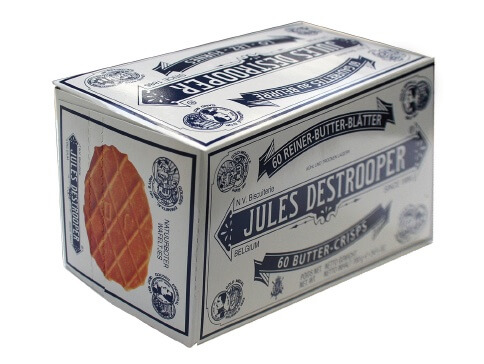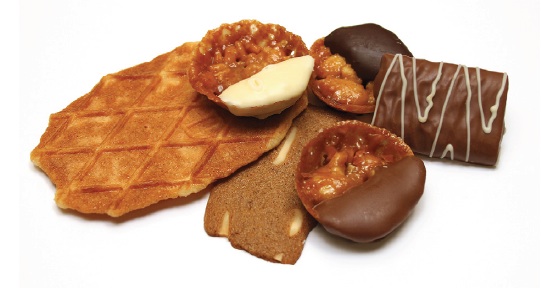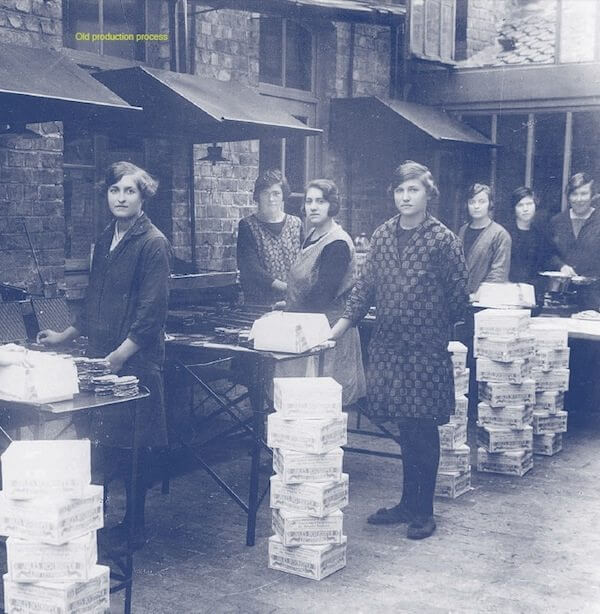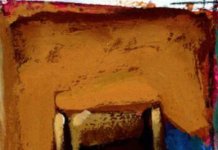Interview with Peter Destrooper, CEO of Jules Destrooper, Belgium
It is commonly understood that behind every successful family business lies a secret that explains a family’s triumph. The biscuiterie Jules Destrooper has kept the secret recipe for its exquisite biscuits under a watchful eye since 1886. Founder Jules Destrooper was a distinguished baker whose biscuit recipes included the best ingredients from Africa and the East. His wife, a shop owner who sold linen, accompanied her products with a present box full of her husband’s delicious biscuits. One of her customers, a hotel manager, served the biscuits to his English guests, marking the beginning of their international fame.
In 1911, Jules Destrooper’s son Jules took over the business and started to sell the products throughout Belgium. The family became renowned for exclusively working with natural ingredients, accepting that the reduced shelf life of its products would prevent the company from exporting globally until years later.
[ms-protect-content id=”4069,4129″]
The Destrooper family business survived two world wars and the severely limited access to ingredients, which ran parallel to both conflicts. After the First World War, the family began production, which targeted neighbouring countries for sales, beginning with England and France. After the Second World War, the Destroopers penetrated the US market. In 1956, the third generation, championed by Hubert and his brother Jean, took over the company and contributed further to its growth and internationalisation. In the late 70s, Hubert modernised the manufacturing facilities allowing the production of biscuits with a longer shelf life than previously possible. And from the 80s onwards, the exports of the celebrated Destrooper products have reached a thankful global customer base.

In 1984, the fourth generation comprised of Peter and his brother Patriek, took over the family business. Hereto the family had maintained a range of only four products, which was then expanded by way of a new production site dedicated to the manufacture of chocolate-coated biscuits. Today, the Jules Destrooper biscuiterie produces a selection of 17 different products, which are exported to over 80 different countries worldwide. The family recently opened a visitor’s centre as a tribute to the company’s history. The opening ceremony was led by the King of Belgium and the family business is now a royal warrant holder of the Court of Belgium. Herewith, Tharawat Magazine speaks to the great grandson of founder Jules Destrooper and CEO of the company, Peter Destrooper, of the secret behind the biscuits that led his family to fame.
When did you join the family business and how has your career evolved?
After finishing my military service I did not really know what to do. I did not initially have the intention to start working in the company. My father said he would support me in anything I did, provided that I would work for him for five years. He told me that if I decided to do something different after that period then he would support me. After six months, I found my place in the company and I did not think about anything else every again. I liked my job so much that I’m still here!
I started my career while I was still in the army and began with a job on theproduction lines in the factory. This has taught me a lot of respect for what people are doing in the company, because I know their jobs very well. After I left the army, I started as a salesman in Belgium. My main goal was to communicate better with customers and to listen to them. This later enabled me to grow the business.
After a few more years, I started as an export salesman following which I became responsible for sales and marketing at the group level. In 2001, I became the group’s CEO.

The Destrooper legacy has been handed down for many generations. Do you think that there is a particular secret to just how your family has been able to sustain its success?
I think the secret lies in a very short answer: Passion. This word really represents the core value that has been handed down across the different generations. It’s really the passion for the product, for the solutions we came up with and for the different cultures we have discovered through our work. Each Destrooper generation grew up with the products. The family always lived next to the factory, so when we opened the back door as children, the factory was right there. I am sure this has contributed to our devotion to our business.
Destrooper is today distributed in over 80 countries. How has your family’s business undertaken this level of expansion?
In the beginning, we participated in many international exhibitions. We still do, but now we mainly focus on the larger ones. Through this approach we found partners and solutions. In general terms I think that you first have to find people who bring your product to the right places. And once your product becomes visible, then you get more professional companies showing an interest. This is how we entered the global market.

What are your family’s core values? How are these characteristics reflected in the business?
To me the values of the family and the company are identical. This is because we are so very involved in the company. Our core values are authenticity, respect, premium quality, simplicity, sustainability, and customer-orientation.
By authenticity we mean that we want to provide an authentic experience in every way; we work with authentic recipes, but also insist on authentic behaviour with people. The notion of respect is widely spread across our company and family. We have respect for our customers, for the environment, for the people working in the company, and for our family members. The value of premium quality means that we are only working in the premium category. We only work with the best ingredients and only want the best for our people and family. Another value is simplicity: If you look at our products, you will immediately see that they are quite simple. Our products are made with natural ingredients without additives or colouring. Even our packaging is quite simple.
We also insist on sustainability, which is what I meant when I was talking about respect for the environment. In everything we do we always try to find out if we can do it in a more sustainable way. I can give some examples, for instance with our chocolate providers, we pay a higher price and every extra cent we pay is an investment in projects for the people who grow the cacao beans. It is invested into the education of the cocoa farmers and in schools, to avoid children having to work in these countries. Another project is the hospitals in Africa where there are a lot of women who die when giving birth to their child. We take our social responsibility very seriously. With regards to the environment, we have invested in a solar installation to provide for our electricity needs. Finally, there is our value of customer-orientation; it’s important to listen to the customer because at the end, they decide on our continuous success.
How is the next generation involved in the family business?
I must say that the next generation is still quite young. Our goal is that the company remains within the family. But there’s not really a rule that the family has to manage the company. I think family members can play different roles at different stages of the company’s evolution. There are times when it is maybe better to have a purely professional management.
Tharawat Magazine, Issue 18, 2013
[/ms-protect-content]















